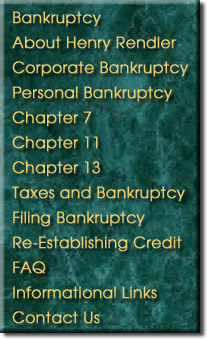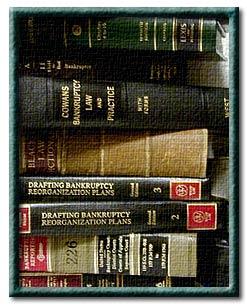
|
||||
| |
||||
|
|
||||
|
Chapter 11 bankruptcy is a reorganization procedure used by businesses, including sole proprietors, partnerships, and corporations. The debtor in chapter 11 files a petition which includes a list of assets and liabilities, and a detailed statement of financial affairs. The debtor will typically act as his own trustee, called a "debtor in possession", and will remain in possession of all estate property. The court can appoint a trustee for cause shown, including mismanagement. The Debtor About one month after the filing, the debtor and his attorney attend a meeting of creditors. The debtor files monthly operating reports, showing income and disbursements, profit and loss, and a balance sheet, and pays quarterly fees to the U.S. Trustee based on the amount of money disbursed. The debtor has the exclusive right to file a plan during the first 4 months. Thereafter, creditors are permitted to file plans. The Chapter 11 plan is accompanied by a disclosure statement, which describes the debtor's financial circumstances, including:
The Plan The plan places creditors
holding similar types of claims (i.e., unsecured, priority, etc.)
into the same class. Creditors whose claims are impaired are allowed
to vote on the plan. A class is impaired if its A plan often calls for the debtor to remain in business, and to repay creditors from future earnings, from borrowings, or from sale of assets. In Chapter 11, priority claims, including recent tax claims, are required to be paid in full, plus interest. Secured claims are required to be paid in full, also with interest. Unsecured non-priority claims are required to be paid a dividend at least equal to that which they would receive if it were a Chapter 7 case. Within these limits, there are an infinite variety of Chapter 11 plans, each based on the debtor's own financial situation. The law provides for formation of creditors committees to provide input and monitor the debtor's progress. More InformationMore detailed information about filing Chapter 11 and the law, written by Henry Rendler, is located at Bankruptcy-Attorney.com/Chapter-11.
Contacting Us For an appointment in regards to Chapter 11 bankruptcy, the law office of Henry Rendler can be contacted at at 408.293.5112.
|

| |||
|
| ||||
 legal rights are altered by the plan. To be confirmed by the court,
the creditors actually voting must approve the plan by a majority
in number, and by a 2/3 majority in dollar amount of claims. At least
one impaired class must approve the plan. If a class votes against
the plan, the court may still approve ("cram-down") the
plan if it finds that the plan is "fair and equitable" and
does not unfairly discriminate.
legal rights are altered by the plan. To be confirmed by the court,
the creditors actually voting must approve the plan by a majority
in number, and by a 2/3 majority in dollar amount of claims. At least
one impaired class must approve the plan. If a class votes against
the plan, the court may still approve ("cram-down") the
plan if it finds that the plan is "fair and equitable" and
does not unfairly discriminate.